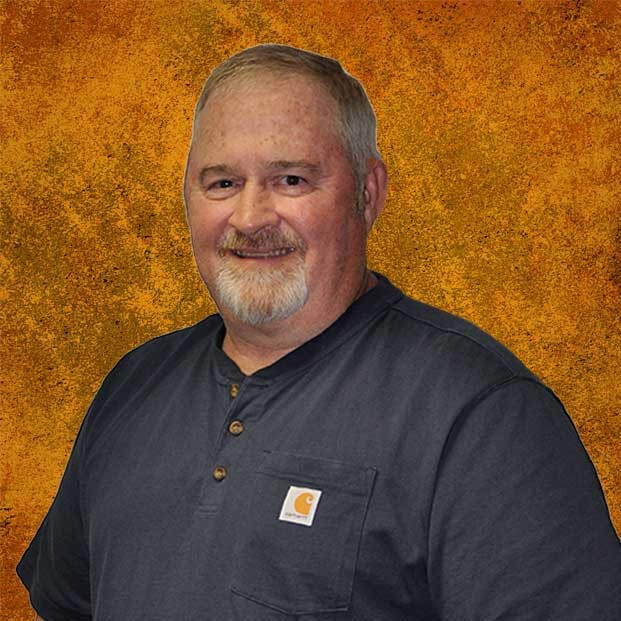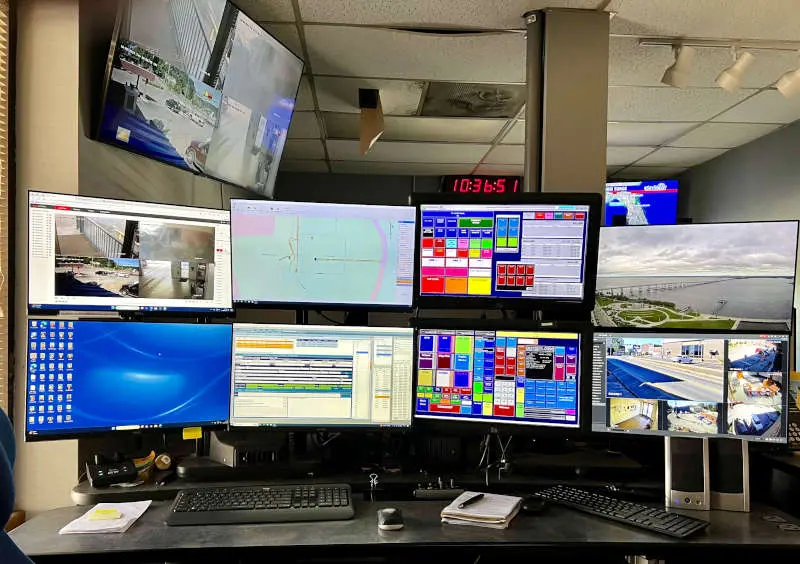 Roger Mays, Dispatch SupervisorOne office in the suites of offices for the Town of Centerville is equivalent to a central nervous system: Dispatch.
Roger Mays, Dispatch SupervisorOne office in the suites of offices for the Town of Centerville is equivalent to a central nervous system: Dispatch.
All public safety information gets routed through Dispatch. Here are some of the kinds of information that constantly flow through a team of employees who monitor an extensive communications network:
- 911 Emergency Calls. Call 911 when a life is in danger, whether from bleeding, drug overdoses, attempted suicide or self-harm, dangerous mental breakdowns, severe injuries from accidents, or criminal activity.
- Non-Emergency Incidents. Call the Dispatch Office at 931-729-5146. Examples of incidents include property damage, vehicle damage, burglaries, vandalism, accidents without severe injury, roving livestock, pet accidents, at-large dogs, and thefts where the perpetrator has fled the scene.
What Is Not An Emergency?
What's not an emergency? A cow in the road. The Dispatch Office knows which farmers have cattle that could be on the road; they know who to call, but it's not an emergency unless someone hits a cow and is injured in the accident.
If you have a dog that appears dangerous, it's not an emergency until it attacks you. Call the Dispatch Office to have the Animal Control officer deal with a dangerous dog. Call 911 if you are injured.
If your electricity goes off, it's not an emergency. It's a matter for MLEC or Dickson Electric; call them.
If you have a gas leak, call the Maintenance Department. If it's after working hours, your call will be routed to the Dispatch Office.
If your water is shut off, it's not a matter for the Dispatch Office. Call the water department or pay your bill.
When You Call 911
Be prepared to answer the dispatcher's questions, which may include
- Address. Tell the Dispatcher the street address of the emergency. Some phones may provide accurate location information, but many cell phones do not.
- Phone Number. Provide the phone number you are calling from. Most phones may provide that information, but an active phone number is critical if the call gets dropped.
- Description of the Emergency. Describe the nature of the emergency, including a physical description of a person who may have committed a crime, a description of a burning fire, details about injuries, or other symptoms of a person having an emergency.
It is essential to give the dispatcher the correct information. In an emergency, the workers in the Dispatch office begin their work as information is gathered from your call. They work as a team to coordinate the efforts of all the types of emergency assistance that may be needed, with calls and messages going out even while your call is online.
The dispatcher is trained to give you the correct instructions to get additional information, help you provide aid for CPR, and help you stay safe. Stay on the line until the dispatcher instructs you to hang up.
About the Dispatch Office
The office works continuously 24 hours a day, seven days a week; someone continually works to direct communications and help those who need it. The staff consists of 11 full-time employees and three part-time employees. Learning the job takes at least six months but requires continuous training, even for experienced and skilled workers. All workers must be appropriately trained and certified; it's essential.
The Dispatch Office connects to emergency services throughout the county, not just for the Town of Centerville. Those services include the Rescue Squad, the county volunteer fire departments, the Sheriff's department, the City Police, Emergency Management Services, and Ambulance Services. The office monitors the school buses and cameras in the schools and notifies the Highway Patrol when needed. They can push a button and get a Life-Flight Helicopter in the air. During September 2024, the office tracked 1957 calls for assistance. The Dispatch Office has cameras installed at critical places, such as the Town Square, where eyes are always on businesses and banks. Weather forecasts and news broadcasts play continuously in the office so workers can be prepared for any event.
The Dispatch Office manages all warrants, records with NCIC (National Crime Information Center), vehicle licenses, orders of protection, missing person notifications, and records of stolen vehicles, boats, weapons, and other property. For every call where assistance is needed, they create a record to track the response and ensure that the proper officer receives the information—a CAD card. They also provide information to insurance companies that need accurate information.



